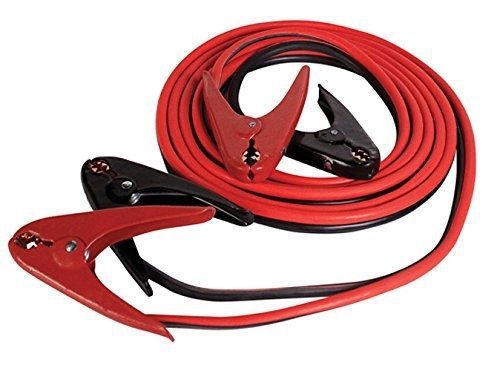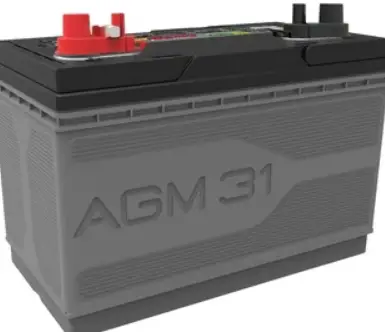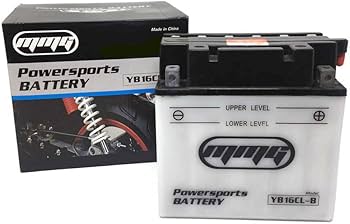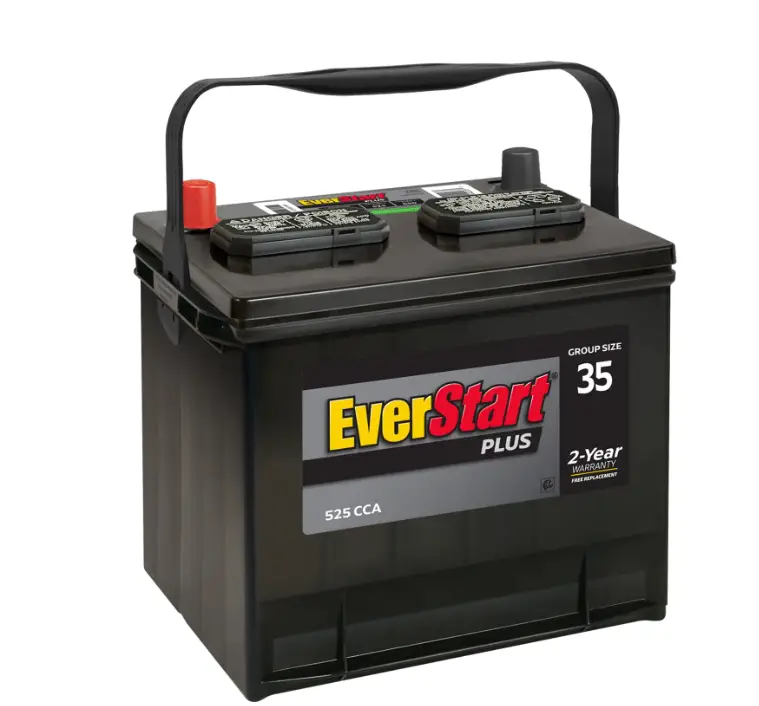
EverStart Plus Lead Acid Automotive Battery, Group Size 35 12 Volt, 525 CCA
- CCA ratings can vary by location. See stores for details
- Better Starting Power
- Free battery testing and installation at your local Walmart Auto Care Center.
- Cold cranking amps (CCA): 525
- Reserve capacity: 100 minutes
- Lead acid design: Flooded
- Maintenance Free
- Price shown does not include the Core Battery charge (varies by state). Core fees will be refunded to a gift card on all battery purchases placed on walmart.com
$109.76
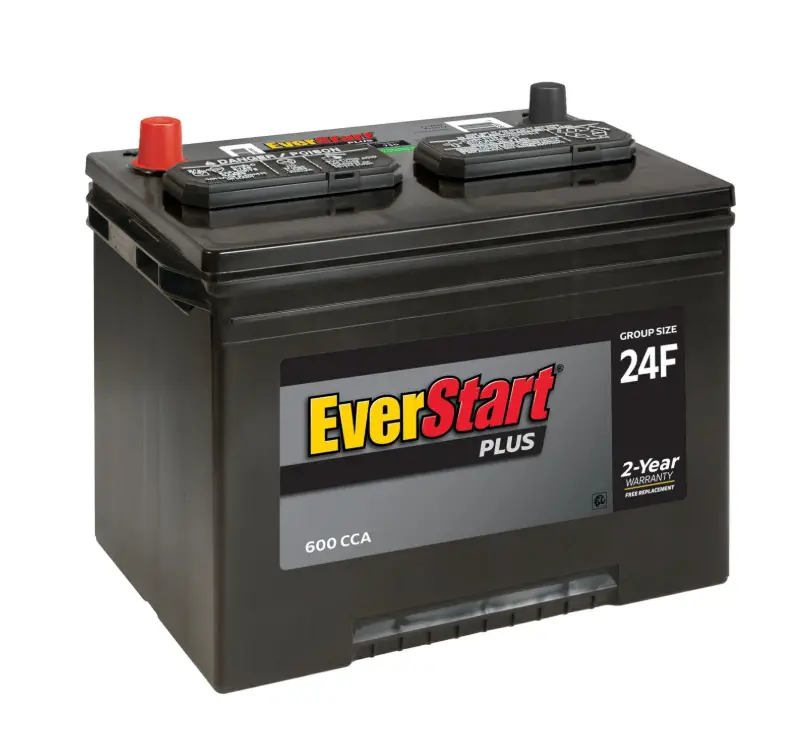
EverStart Plus Lead Acid Automotive Battery, Group Size 24F 12 Volt, 600 CCA
- CCA ratings can vary by location. See stores for details
- Better Starting Power
- Free battery testing and installation at your local Walmart Auto Care Center.
- Cold cranking amps (CCA): 600
- Reserve capacity: 110 minutes
- Lead acid design: Flooded
- Maintenance Free
$109.76
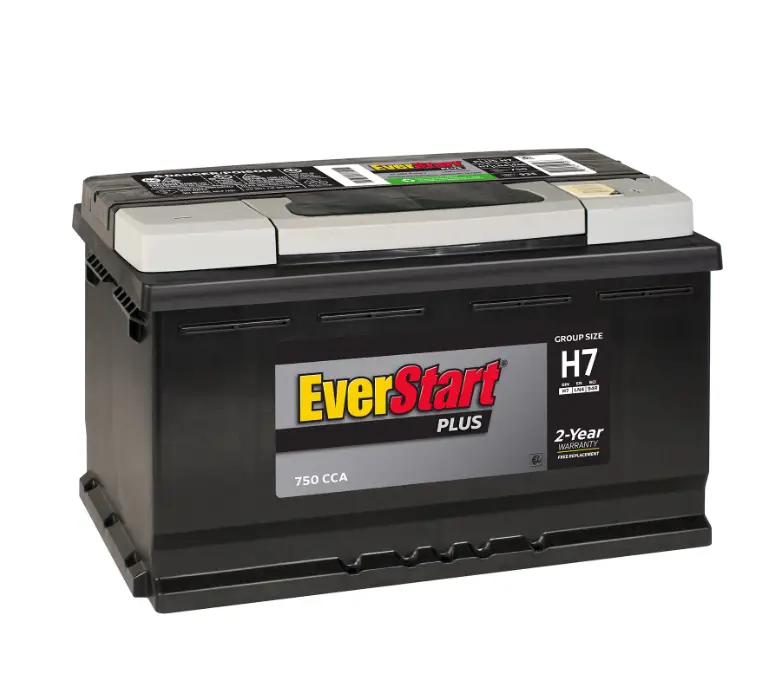
EverStart Plus Lead Acid Automotive Battery, Group Size H7 / LN4 / 94R 12 Volt, 750 CCA
- CCA ratings can vary by location. See stores for details
- Better Starting Power
- Free battery testing and installation at your local Walmart Auto Care Center.
- Cold cranking amps (CCA): 750
- Reserve capacity: 120 minutes
- Lead acid design: Flooded
- Maintenance Free
$113.27
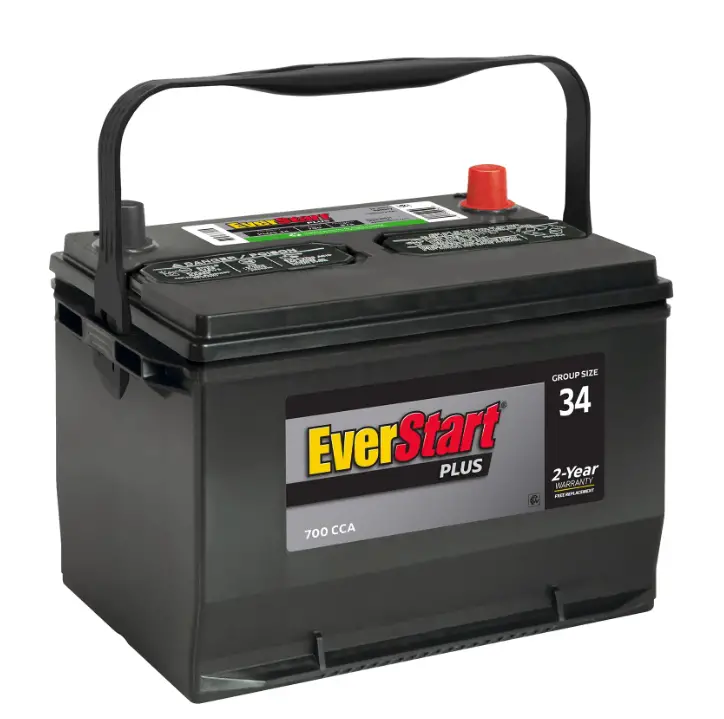
EverStart Plus Lead Acid Automotive Battery, Group Size 34 12 Volt, 700 CCA
- CCA ratings can vary by location. See stores for details
- Better Starting Power
- Free battery testing and installation at your local Walmart Auto Care Center.
- Cold cranking amps (CCA): 700
- Reserve capacity: 110 minutes
- Lead acid design: Flooded
- Maintenance Free
$109.76
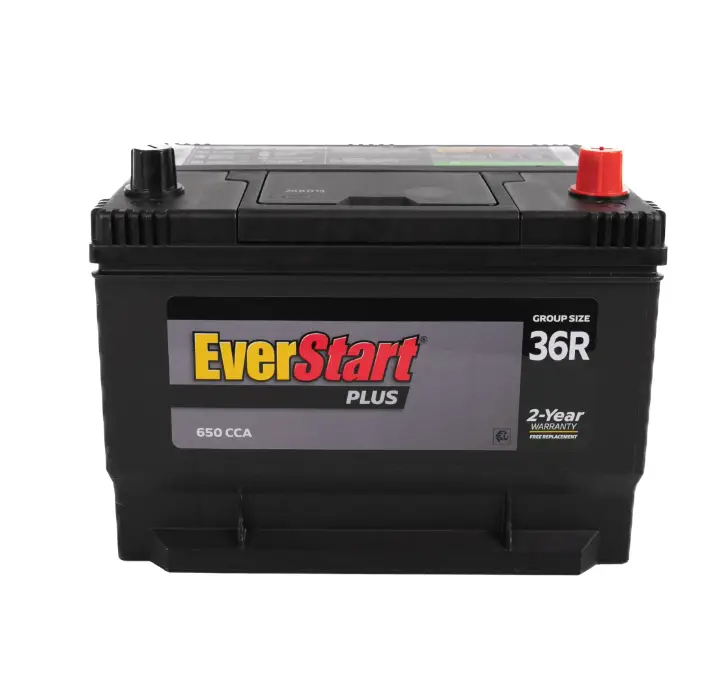
EverStart Plus Lead Acid Automotive Battery, Group Size 36R-3 (12 Volt/650 CCA)
- EverStart Plus Lead Acid Automotive Battery, Group Size 36R-3 (12 Volt/650 CCA)
- Reliable Starting Power
- 2 year free replacement warranty
- Cold cranking amps: 650
- Top post
- Lead acid automotive battery fits in various makes, models and years. Need help finding the right battery? Battery Lookup Tool
- Free battery testing and installation at your local Walmart Auto Care Center
- If you need to get rid of your old battery, there is free lead acid battery recycling at your local Walmart
$113.00
When my trusty sedan refused to start on a frosty December morning last year, I found myself diving headfirst into the world of car batteries. After hours of research and one very enlightening conversation with a seasoned mechanic, I decided to give the Everstart Plus battery a chance. Little did I know this decision would spark my fascination with what many consider just another car part. The right battery can make all the difference between reliable transportation and being stranded on the roadside with a vehicle that won’t start.
Let me take you through everything I’ve learned about the Everstart Plus battery – from its specifications and compatibility to real-world performance and value. Whether you’re facing an emergency replacement or planning ahead, this comprehensive guide will help you make an informed decision.
What Exactly Is the Everstart Plus Battery?
The Everstart Plus is Walmart’s mid-tier automotive battery offering, positioned between the budget-friendly Everstart Value line and the premium Everstart Maxx series. Manufactured by Johnson Controls (the same company behind other well-known brands like Interstate and Duracell), these batteries represent a balance between affordability and performance.
My first impression when handling the Everstart Plus was its solid construction. The battery features a robust polypropylene case that feels substantial – not flimsy like some budget alternatives I’ve encountered. This housing protects the lead-acid cells inside, which are arranged in a conventional flooded cell design.
Unlike some premium options, the Everstart Plus utilizes traditional battery technology rather than AGM (Absorbent Glass Mat) construction. This keeps costs down while still delivering reliable performance for most everyday driving scenarios. Each battery contains six cells generating 12 volts of power – the standard for most passenger vehicles on the road today.
Everstart Plus vs. Everstart Maxx: Understanding the Differences
When I first started researching, the distinction between the Plus and Maxx lines wasn’t immediately clear. After comparing specifications and speaking with several automotive experts, I discovered several key differences worth considering.
The Everstart Maxx represents Walmart’s premium battery offering, featuring higher cold cranking amps (CCA), longer warranties, and enhanced durability features. Many Maxx models utilize AGM technology, which better resists vibration, provides improved cycling capability, and requires zero maintenance throughout its lifespan.
In contrast, the Everstart Plus focuses on delivering solid performance at a more accessible price point. While it offers fewer bells and whistles, the Plus still provides reliable starting power for most vehicles under typical conditions. Here’s how they compare on key metrics:
Cold Cranking Amps: The Plus typically offers 550-750 CCA depending on the specific model, while the Maxx pushes into the 750-1000+ CCA range. This makes the Maxx potentially better for extreme cold weather or high-demand applications.
Warranty Coverage: The Plus comes with a 2-year free replacement warranty, whereas the Maxx extends this to 3-5 years depending on the specific model.
Price Point: You’ll typically save $20-40 by choosing the Plus over a comparable Maxx model – a significant difference when working within a budget.
Reserve Capacity: The Maxx generally offers 10-20% more reserve capacity, providing additional runtime if your alternator fails.
For my Toyota Camry driven in a moderate climate, the Plus offered sufficient performance without the premium price tag. However, if you’re driving a larger vehicle with high electrical demands or live in an area with extreme temperatures, the Maxx might justify its higher cost.
Vehicle Compatibility: Will It Fit Your Ride?
One aspect that initially confused me was determining which Everstart Plus battery would fit my vehicle. Batteries come in various group sizes – standardized dimensions that ensure proper fit within your vehicle’s battery compartment.
The Everstart Plus line covers most common group sizes, including:
- Group 24/24F (common in many Honda, Toyota, and Nissan models)
- Group 35 (found in many Japanese and Korean vehicles)
- Group 65 (popular in larger GM vehicles)
- Group 75 (common in many Ford and Chrysler applications)
- Group 78 (used in various trucks and SUVs)
To identify the correct size for your vehicle, you can:
- Check your existing battery’s group number (usually printed on the label)
- Consult your vehicle’s owner manual
- Use the battery finder tool on Walmart’s website
- Reference the compatibility chart typically displayed near the battery section in-store
When I replaced my battery, I was surprised to discover that some vehicles can accommodate multiple group sizes. My Camry could use either a Group 24F or Group 35, which gave me flexibility in my selection. I ultimately chose the Group 24F with slightly higher CCA ratings for additional cold-weather security.
It’s worth noting that battery terminals can be positioned differently (top or side) and oriented in various configurations (positive on left or right). Ensuring you get the correct terminal arrangement is crucial for proper installation and cable reach.
Real-World Performance: Is the Everstart Plus Good for Everyday Use?
After living with the Everstart Plus for over a year in my daily driver, I can confidently say it delivers reliable performance for typical commuting and around-town driving. The battery cranks consistently each morning, including during our region’s moderately cold winter months where temperatures occasionally dip into the low 20s Fahrenheit.
Where the Plus really shines is in its balance of performance and value. While it may not offer the ultimate cold-weather performance of premium batteries costing twice as much, it provides more than adequate starting power for most situations the average driver will encounter.
I’ve noticed the battery handles short trips well – something that can be challenging for some batteries as they don’t always fully recharge during brief drives. Even after sitting unused for a week during a family vacation, my car started without hesitation upon our return.
One moderate limitation I’ve observed is with accessory power. When running multiple high-draw devices (heated seats, defrosters, headlights, and the audio system) simultaneously during cold weather, I’ve occasionally noticed slightly dimmer headlights during initial startup compared to my previous premium battery. This minor difference disappears once the engine is running and the alternator takes over charging duties.
For the vast majority of drivers with mainstream vehicles and typical driving habits, the Everstart Plus provides perfectly adequate performance without breaking the bank.
Longevity: How Long Will Your Investment Last?
Battery lifespan is influenced by numerous factors including climate, driving habits, vehicle electrical demands, and maintenance. Based on my research and conversations with automotive technicians, the typical Everstart Plus battery delivers 3-5 years of reliable service under normal conditions.
This lifespan compares favorably with other mid-tier battery offerings from competing brands, especially considering the price differential. While premium batteries might squeeze out an extra year or two of service, they typically cost 40-60% more than the Everstart Plus.
Climate plays a significant role in determining battery longevity. Extreme heat accelerates internal corrosion and water loss, while severe cold reduces chemical reaction efficiency and makes starting more demanding. Living in the temperature-moderate Pacific Northwest has likely contributed to my positive experience with the Plus.
Driving habits also impact battery life significantly. Frequent short trips prevent full recharging, while long periods of disuse can lead to sulfation (hardened lead sulfate crystals forming on the plates). I’ve found that my mixed driving patterns – combining daily commuting with occasional longer weekend trips – seem well-suited to maximizing the battery’s potential lifespan.
Warranty Coverage: Your Safety Net
The Everstart Plus comes with a 2-year free replacement warranty – an important consideration when evaluating overall value. This warranty is handled directly through Walmart, simplifying the replacement process compared to manufacturer warranties that might require shipping or visiting specialized service centers.
When purchasing my battery, the associate explained that the warranty is prorated, meaning:
- Within the first 2 years: Free replacement if the battery fails a load test
- After 2 years: Partial credit toward a new battery based on the remaining usable life
To take advantage of the warranty, you’ll need your original receipt and the failing battery. Walmart technicians will perform a load test to verify the failure before processing the warranty claim. I recommend keeping your receipt digitally (I took a photo and stored it in my phone’s “important documents” folder) to ensure you can access it if needed.
One mechanic I spoke with suggested having your battery tested at about the 20-month mark – just before warranty expiration – to potentially catch any developing issues while still covered for free replacement. This struck me as particularly good advice for maximizing the value of your purchase.
Cold Cranking Amps: Understanding This Critical Specification
Before diving into the battery world, I had only a vague understanding of what Cold Cranking Amps (CCA) actually meant. I’ve since learned it’s one of the most important specifications to consider when selecting a battery.
CCA measures a battery’s ability to start an engine in cold temperatures, specifically defining how many amps a battery can deliver at 0°F for 30 seconds while maintaining at least 7.2 volts. Higher CCA ratings indicate better cold-weather starting performance.
The Everstart Plus lineup offers varying CCA ratings depending on the specific model and group size:
- Smaller group sizes typically range from 550-650 CCA
- Medium group sizes generally offer 650-750 CCA
- Larger group sizes may provide 750-850 CCA
For my moderate climate and 4-cylinder engine, the 650 CCA rating of my Group 24F Everstart Plus has proven more than adequate. However, if you’re driving a larger engine (particularly diesel) or live in regions with severe winter temperatures, you might want to prioritize higher CCA ratings.
One important insight I gained through research: manufacturers sometimes inflate CCA ratings for marketing purposes. The Everstart Plus typically provides honest ratings that align with actual performance – something I appreciate when making purchasing decisions.
Where to Buy: Finding the Best Deal
As Walmart’s house brand, Everstart Plus batteries are exclusively available at Walmart stores and through their online platform. This limited distribution actually works in the consumer’s favor, as it eliminates price variation between retailers and simplifies the shopping process.
I found several advantages to purchasing in-store rather than online:
- The ability to check manufacturing dates (fresher is better)
- No concerns about shipping damage
- Immediate availability for emergency replacements
- Free installation at many locations
- Direct access to warranty service if needed
Most Walmart Automotive Centers keep a substantial inventory of common battery sizes, making same-day replacement possible in most cases. When I purchased mine, I was able to browse various group sizes compatible with my vehicle and select the one with the most recent manufacturing date.
Price-wise, the Everstart Plus typically ranges from $85-$130 depending on group size and specifications – positioning it very competitively in the mid-tier battery market. I paid $94.99 for my Group 24F model, significantly less than the $135+ quotes I received for comparable batteries from auto parts chains.
Maintenance Requirements: Hassle-Free Ownership
One feature I particularly appreciate about my Everstart Plus is its minimal maintenance requirements. While technically classified as a “low-maintenance” rather than “maintenance-free” battery, in practice, I’ve found it requires essentially no routine attention under normal circumstances.
The battery features a sealed design with sufficient electrolyte to last throughout its expected lifespan under typical conditions. Unlike older battery designs, there’s no need to periodically check water levels or add distilled water to individual cells.
The only maintenance I’ve performed in over a year of ownership was cleaning the terminals once when I noticed minor corrosion forming – a quick 5-minute job using a wire brush and some baking soda solution. Preventative terminal protection using specialized sprays or grease can further reduce even this minimal maintenance requirement.
For those living in extreme climates or with vehicles that sit unused for extended periods, a smart battery maintainer can help maximize battery life. These devices provide a controlled trickle charge that prevents sulfation without overcharging – I use one during winter months when my motorcycle sits idle.
Physical Dimensions: Finding the Perfect Fit
Beyond the standardized group sizes, understanding the specific dimensions of your Everstart Plus battery can help ensure a proper fit in your vehicle’s battery compartment. During my replacement process, I learned that even within the same group size, minor variations in height, length, or terminal position can affect installation.
The Everstart Plus follows Battery Council International (BCI) dimensional standards for each group size, with typical measurements as follows:
Group 24/24F:
- Length: 10.25 inches
- Width: 6.8 inches
- Height: 8.9 inches
Group 35:
- Length: 9.1 inches
- Width: 6.9 inches
- Height: 8.9 inches
Group 65:
- Length: 12 inches
- Width: 7.5 inches
- Height: 7.6 inches
Group 75:
- Length: 9.4 inches
- Width: 6.9 inches
- Height: 7.5 inches
When replacing my battery, I discovered that the height dimension was particularly important due to limited clearance beneath my hood. The Everstart Plus fit perfectly, while a competitor’s “same” group size was actually 0.3 inches taller and would have required modification to the battery hold-down mechanism.
If your vehicle has an unusual battery compartment configuration, it’s worth bringing a measuring tape to ensure compatibility before purchase. The few minutes spent confirming dimensions can save considerable frustration during installation.
Cost Considerations: Value Beyond the Price Tag
At first glance, the Everstart Plus might seem like just another mid-priced battery option. However, analyzing the total cost of ownership reveals its exceptional value proposition.
When I compared my $94.99 Group 24F Everstart Plus against competitors, I found:
- National brand equivalents (Duracell, Diehard) typically cost $115-130
- Auto parts store house brands ran $105-120
- Premium AGM alternatives started at $180
Factoring in the 2-year warranty, easy exchange process, and observed reliability, the Everstart Plus emerged as the clear value leader in its category. The $20-35 savings compared to equivalent batteries represents a significant percentage of the total purchase price.
For budget-conscious drivers, the Everstart Value line offers an even lower initial price point (typically $15-25 less than the Plus), but with reduced performance specifications and shorter warranty coverage. After weighing the modest price difference against the performance benefits, I determined the Plus offered better long-term value for my needs.
Cold Weather Performance: Winter Reliability
Having experienced several cold snaps with my Everstart Plus, I can report confident cold-weather starting down to about 15°F without any hesitation. While my climate doesn’t regularly see extreme cold, research and user reports suggest the Plus performs adequately down to about 0°F in most vehicles.
For those in extremely cold regions (consistently below 0°F), the standard Everstart Plus might approach its limitations, particularly in larger engines or diesel applications. In these scenarios, either the higher-CCA Everstart Maxx or a specialized AGM battery might be a worthwhile investment despite the higher cost.
Several techniques can help maximize cold-weather performance:
- Keep the battery fully charged (cold temperatures reduce available power)
- Ensure clean, tight terminal connections
- Turn off unnecessary electrical accessories before starting
- Consider a battery blanket for extreme conditions
- Park in a garage or sheltered area when possible
I’ve found that my Everstart Plus recovers well after cold starts, quickly regaining its charge capacity once the vehicle is running. This resilience speaks to the quality of its internal construction and materials.
Installation Guide: Doing It Right the First Time
While many Walmart locations offer free installation with purchase, I chose to install my Everstart Plus myself as a weekend project. The process was straightforward, though I learned several important lessons worth sharing:
- Safety first: Disconnect the negative terminal before the positive to prevent shorts, and reconnect in reverse order (positive then negative).
- Battery position matters: Ensure the battery is properly aligned and securely fastened in its tray – movement can damage terminals and internal components.
- Terminal cleanliness is crucial: Clean both the battery terminals and cable ends thoroughly before connecting to ensure good electrical contact.
- Proper torque prevents problems: Tighten terminal connections firmly but don’t overtighten, which can damage the battery posts.
- Protect against corrosion: Apply anti-corrosion washers or terminal spray after installation to prevent future maintenance issues.
The entire installation took me about 30 minutes, including time spent cleaning the battery tray and terminals. If you’re uncomfortable performing this task, Walmart’s free installation service represents additional value built into the purchase price.
One unexpected benefit of self-installation was the opportunity to inspect related components like the battery cables, hold-down mechanism, and surrounding wiring – revealing a corroded ground wire that I was able to clean and prevent potential future issues.
Comparing Across the Everstart Line: Finding Your Perfect Match
The Everstart brand encompasses three distinct battery lines, each targeting different needs and price points:
Everstart Value: The budget option, offering basic reliability with lower performance specifications and typically a 1-year warranty. Suitable for older vehicles with minimal electrical demands in moderate climates.
Everstart Plus: The mid-tier balance of performance and value, offering improved cold-cranking performance, longer warranties, and better durability. Well-suited for most mainstream vehicles and driving conditions.
Everstart Maxx: The premium offering, featuring maximum cold-cranking performance, extended warranties, and often AGM technology for enhanced durability and deep-cycle capability. Ideal for vehicles with high electrical demands, extreme climates, or those requiring maximum reliability.
After comparing all three options, I determined the Plus represented the optimal balance for my typical driving needs. The Value line seemed too limited in cold-weather performance and warranty coverage, while the Maxx offered capabilities beyond what my vehicle actually required.
For specialty applications like marine use, Everstart also offers dedicated deep-cycle batteries optimized for sustained power delivery rather than starting performance. These weren’t relevant to my automotive needs but represent additional options within the broader Everstart ecosystem.
Key Features: What Makes the Everstart Plus Stand Out
Several distinctive features contribute to the Everstart Plus battery’s performance and value proposition:
Envelope separators between plates enhance durability by reducing internal short circuits – a common failure mode in lower-quality batteries. This design element contributes to the longer lifespan compared to budget alternatives.
Calcium-enhanced grid alloys improve charge acceptance and reduce water loss, extending maintenance-free operation throughout the battery’s life. This technology advancement represents a significant improvement over older lead-antimony designs.
Fortified posts and connections resist vibration damage, addressing one of the most common causes of premature battery failure. This feature proved particularly valuable in my vehicle, which has a somewhat firm suspension.
Heat-sealed case construction prevents leakage and environmental contamination, enhancing safety and reliability. The robust polypropylene housing feels substantially more durable than some competitor offerings I examined.
Built-in hydrometer on select models provides a quick visual indication of charge status – a feature I’ve found surprisingly useful for at-a-glance health checks during routine maintenance.
Proper Charging Techniques: Maximizing Battery Health
When my Everstart Plus sat unused during a two-week vacation, I learned valuable lessons about proper charging techniques. While modern automotive batteries are designed for maintenance-free operation, occasional supplemental charging can maximize lifespan – particularly for vehicles that sit idle for extended periods.
For standard recharging of a moderately discharged battery, a basic automotive charger set to 12V at 2-10 amps works well. I found that a full charge typically takes 6-12 hours depending on the depth of discharge.
For long-term maintenance charging (vehicles in storage), a smart charger or battery maintainer provides optimal results. These devices monitor battery condition and adjust the charge rate automatically, preventing both undercharging and harmful overcharging.
One technique I’ve adopted is periodic equalization charging – a controlled overcharge that helps prevent sulfation and balances cell voltages. For the Everstart Plus, a 16-hour charge at 13.8-14.1 volts once every six months seems to maintain optimal performance.
Modern smart chargers often include desulfation modes that can help recover batteries showing early signs of capacity loss. While not a magic cure for severely degraded batteries, I’ve found this feature helpful in extending useful life when applied proactively.
SUV and Truck Compatibility: Power for Larger Vehicles
While my personal experience centers on using the Everstart Plus in a mid-size sedan, research indicates these batteries also serve well in many SUV and light truck applications. The Plus line includes several group sizes specifically designed for these larger vehicles:
Group 65: Common in many full-size GM SUVs and trucks
Group 78: Found in numerous Ford truck applications
Group 34/78: A dual-terminal design popular in many Chrysler/Dodge trucks
For standard light-duty trucks and SUVs with moderate electrical demands, the Everstart Plus typically provides adequate performance at a competitive price point. However, several scenarios might warrant stepping up to the Everstart Maxx or a specialized AGM battery:
- Diesel engines (particularly in cold climates) benefit from the higher CCA ratings of premium batteries
- Vehicles with extensive aftermarket electrical accessories may need the enhanced reserve capacity
- Off-road applications with significant vibration exposure are better served by AGM technology
- Commercial vehicles that can’t afford downtime may justify the extended warranty and lifespan
If your truck or SUV serves as basic transportation without special demands, the Everstart Plus likely offers the best value proposition, potentially saving $30-50 over comparable alternatives while delivering similar everyday performance.
Battery Testing: Monitoring Health and Performance
One practice I’ve adopted is periodic testing of my Everstart Plus to monitor its condition and catch potential issues before they leave me stranded. Most Walmart Auto Centers offer free battery testing, but I’ve also found several DIY approaches effective:
Multimeter testing provides basic voltage readings that indicate charge status:
- 12.6V+ indicates a fully charged battery
- 12.4V suggests about 75% charge
- 12.2V indicates 50% charge
- Below 12.0V signals a significantly discharged condition
Load testing offers more meaningful insights into actual performance capacity. While professional equipment is ideal, I’ve found that turning on headlights for 2-3 minutes (engine off) then checking voltage can provide a basic assessment. A healthy battery should maintain above 12.2V during this test.
For more detailed analysis, I purchased an inexpensive battery hydrometer that measures electrolyte specific gravity. Regular readings have shown consistent values between cells, indicating balanced performance throughout the battery.
Many auto parts stores offer free comprehensive battery testing using specialized equipment. I’ve made it a habit to request this service during regular oil changes, providing trend data that helps predict remaining lifespan.
Environmentally Responsible Disposal and Recycling
When replacing my previous battery, I learned that automotive batteries are among the most recycled consumer products – with recovery rates exceeding 95% in the United States. The Everstart Plus is designed for complete recyclability, with virtually all components recoverable for reuse.
The proper disposal process is straightforward:
- Most retailers (including Walmart) accept old batteries for recycling
- Many states require retailers to accept returns and may collect a deposit/refund
- Never dispose of automotive batteries in regular trash (it’s both illegal and environmentally harmful)
- Some municipalities operate hazardous waste collection facilities that accept batteries
When I purchased my Everstart Plus, Walmart collected my old battery for recycling and even provided a $10 core credit against my purchase – an additional value benefit that effectively reduced my net cost to $84.99.
The recycling process recovers:
- Lead (reused in new batteries)
- Plastic (processed into new cases)
- Electrolyte (neutralized and processed)
- Other metals (separated and recycled)
This closed-loop recycling system represents one of the most successful circular economy examples in the automotive industry.
Conclusion: Is the Everstart Plus Right for You?
After more than a year living with the Everstart Plus battery, I can confidently recommend it for the majority of drivers seeking reliable performance without premium pricing. The Everstart Plus strikes an impressive balance between affordability and dependability that few competitors can match.
For typical daily driving in most climates, this battery delivers everything most vehicles need while saving $20-40 compared to similar alternatives. The comprehensive warranty coverage and convenient service network provide additional peace of mind that enhances the overall value proposition.
While those with specialized needs – extreme climates, heavy electrical demands, or maximum lifespan requirements – might benefit from stepping up to the Maxx series or other premium options, the Plus represents the sweet spot for value-conscious drivers unwilling to compromise on essential performance.
My Everstart Plus continues to start reliably through all seasons, handle my vehicle’s electrical demands without issue, and deliver the worry-free ownership experience I was seeking. Sometimes the best products aren’t the most expensive or the most heavily marketed – they’re the ones that quietly do their job day after day without drama or disappointment. The Everstart Plus has earned its place in that category.


